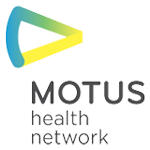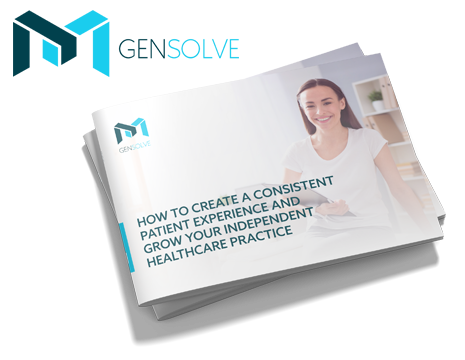Striking the balance between outstanding clinical care and running an efficient business is a major challenge for independent healthcare practice owners and managers. As pressure increases on private practices to cater for ever greater numbers of NHS referrals on top of their private patients, driving efficiencies has become even more critical.
Communication is key. Nurturing great communication between different practitioners, supporting staff and clients is central to improving service efficiency without negatively impacting the quality of care – and today, that means using technology in the wisest way. eHealth as a term for electronic healthcare business and patient record management was coined as far back as 1999. Today, with increased scrutiny of data security, practice managers must be able to trust any system they use.
If you already have a practice management solution in place, this will hopefully give you some ideas about how you can use all its features to help you maximise efficiency levels, connect with patients and ensure standards of care continue to be met. If you don’t already have the right digital tools in place, the best thing you can do for your practice is to start looking for them.
Provide a simple online booking facility
If your patients still have to phone up to book an appointment – and you rely on them leaving a message for much of the time – you could be missing out on a lot of new clients.
As our lives become increasingly digital, we are growing intolerant of analogue services that feel clunky and slow in comparison. We are used to booking everything from gym sessions to takeaway meals to holidays online. It’s a sign of the times that having to phone up for a service now seems unattractive. If you had a choice between an online booking system and a call-up service, which one would you choose?
Becoming more efficient means removing all obstacles to customer engagement wherever possible. Making an appointment with your practice is the point where a patient already starts to form an impression – so make that impression a good one.
Online booking also opens up time in your office. Fewer phone calls to answer allows your receptionist or practice manager to focus on other areas of customer service, or ensure admin tasks stay up to date.
Reducing DNA and CNA rates (did not attend and could not attend)
The NHS loses an estimated £152m every year as a result of missed appointments – a problem which also plagues the private sector. Research shows that no-show rates can be dramatically reduced by simple functionality and issuing email and SMS reminders to patients in the run up to an appointment.
It’s one thing to record a no-show, it’s another to ensure the right person contacts that client, understands why they weren’t able to attend and looks to book them back into clinic. Some clients simply don’t attend because they’re embarrassed they’ve not done their exercises. A welcoming call from their clinician to say ‘we understand, no problem’ not only leads to continued appointments, but leaves the client happy and keen to refer the practice. But you need a system that automates that process.
Equally, the results of a simple reminder text can be significant. One specialist paediatric physiotherapist reported a 53 per cent reduction in wasted hours following the adoption of SMS appointment reminders.
The best practice management solutions contain SMS alerts as part of the suite of software tools. Your patients will receive reminders on their mobile phones automatically as part of the appointment management service. If they can’t attend, they can cancel in advance, allowing you to offer their appointment to someone else.
Offer a block payment service
In order to circumvent potential patient no-shows, many practices choose to operate on a block payment policy which allows for an extra net of security and ensures responsibility of attendance belongs to the patient.
This facility is often very attractive to patients, allowing them to block-pay for treatment in advance. It also allows you to make offers of discounts available as an incentive to pay ahead of their appointments. In return, you have the right to refuse refunds if the patient cancels with less than 24-hours’ notice, for instance.
Some important points to remember when considering this option are:
- Clearly state on your website appointment booking page that there is a block-paying option so that the client can take advantage of this when they come in for their first appointment
- Make sure that your T’s and C’s clearly mention that late cancellations and no-show appointments are non-refundable or discretionary
- Make sure you have credit or debit card payment facilities in your practice to facilitate larger payments
Streamline all back-office operations and improve customer service by default
Using a good practice management solution impacts your customer service levels in more ways than are immediately obvious. Improving the customer-facing facets of the business are a primary focus of course. But by streamlining your operations with technology that was made for the sole purpose of managing an independent healthcare practice, your customers will benefit in many other ways as well.
Simplified Finances
Doing away with spreadsheets in exchange for a sophisticated finance management tool will help you manage multiple levels of your finances at once. Budgets, forecasts, payments, supplier accounts, invoices and tax calculations can all be taken care of on a single platform that allows you to access any element whenever you need to and keeps it all up to date.
Reporting, Analytics and KPIs to help you track performance
Using technology in the smartest possible way to help you drive efficiencies in your practice means taking out guesswork. When it comes to understanding how your business is doing you need absolute clarity.
You want to know, within a couple of clicks, how the business is performing today, compared with last month or last year. You need to be able to drill down into details to see which elements contributed to periods of particular success so that you can aim to repeat them. Only by understanding your business on this level can you set yourself meaningful goals for the future.
A huge benefit of a single practice management system is being able to access data very quickly and easily. Reports and analytics dashboards give you different views of your finances, departmental performance breakdowns, facilities expenses and other business KPIs. This not only allows you to monitor your progress but also to react quickly to anything that requires attention, before it builds to a major problem.
















